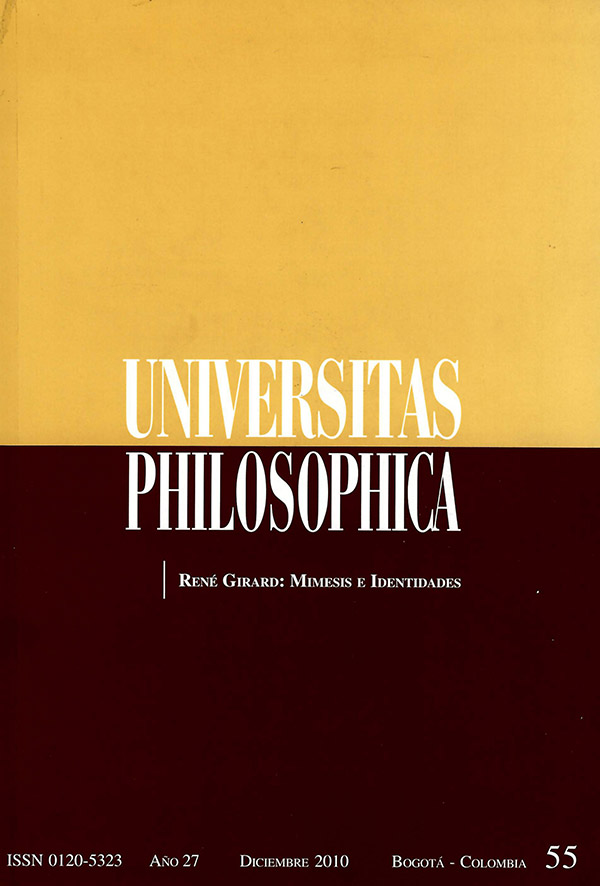Resumen
Este artículo plantea los elementos iniciales para una recepción teológica de la teoría mimética en el contexto de la crítica posmoderna a la razón instrumental. En relación con la fenomenología de la subjetividad y con la pragmática de la ética del discurso, la aportación de René Girard contribuye a analizar críticamente el problema de la intersubjetividad como categoría clave para el pensamiento moderno tardío. En particular, a través del análisis de la difícil constitución de la subjetividad en el seno de las sociedades liberales en Occidente, aparece la teoría del deseo mimético para dar cuenta de la compleja trama de relaciones de deseo, poder y dominación en las que el sujeto construye su identidad frente a los otros. La pertinencia de la fe cristiana en este contexto podrá apreciarse en tanto que resuelve el enigma del deseo violento y abre la posibilidad de la constitución de la intersubjetividad a partir de la reconciliación que procede de la víctima perdonadora.
Esta revista científica se encuentra registrada bajo la licencia Creative Commons Reconocimiento 4.0 Internacional. Por lo tanto, esta obra se puede reproducir, distribuir y comunicar públicamente en formato digital, siempre que se reconozca el nombre de los autores y a la Pontificia Universidad Javeriana. Se permite citar, adaptar, transformar, autoarchivar, republicar y crear a partir del material, para cualquier finalidad (incluso comercial), siempre que se reconozca adecuadamente la autoría, se proporcione un enlace a la obra original y se indique si se han realizado cambios. La Pontificia Universidad Javeriana no retiene los derechos sobre las obras publicadas y los contenidos son responsabilidad exclusiva de los autores, quienes conservan sus derechos morales, intelectuales, de privacidad y publicidad.
El aval sobre la intervención de la obra (revisión, corrección de estilo, traducción, diagramación) y su posterior divulgación se otorga mediante una licencia de uso y no a través de una cesión de derechos, lo que representa que la revista y la Pontificia Universidad Javeriana se eximen de cualquier responsabilidad que se pueda derivar de una mala práctica ética por parte de los autores. En consecuencia de la protección brindada por la licencia de uso, la revista no se encuentra en la obligación de publicar retractaciones o modificar la información ya publicada, a no ser que la errata surja del proceso de gestión editorial. La publicación de contenidos en esta revista no representa regalías para los contribuyentes.


